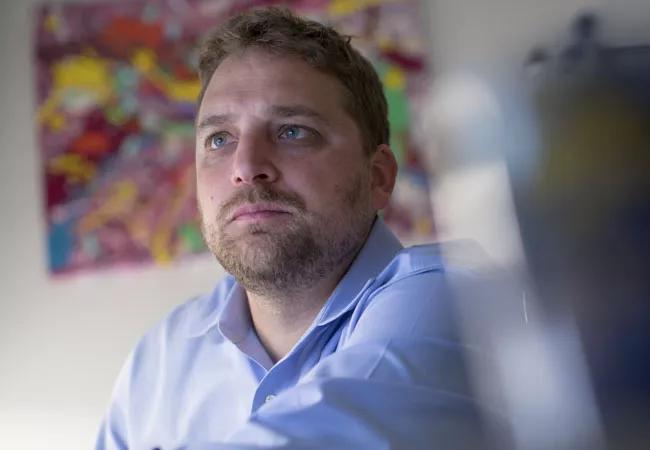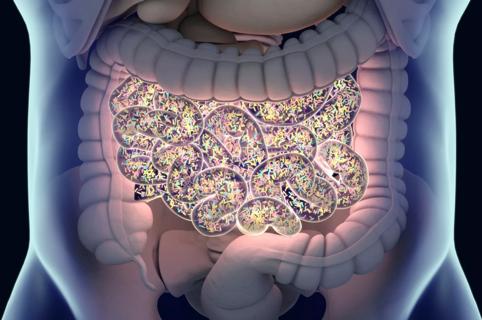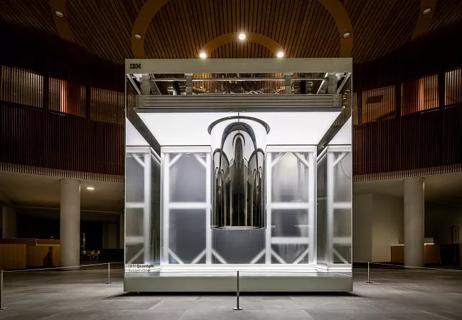A multidisciplinary team of Cleveland Clinic scientists looks to evolution for answers

Despite the tremendous progress in cancer treatment brought on by targeted therapies and immunotherapies, the development of drug resistance remains a serious challenge. It has been estimated that drug resistance, whether intrinsic or acquired, is responsible for up to 90% of cancer-related deaths. “Patients with metastatic cancer almost all succumb to their disease,” says Cleveland Clinic radiation oncologist Jacob G. Scott, MD, DPhil, whose research team — the Theory Division — is taking an unusual approach to studying drug resistance by diving deeper into the mechanisms of evolution.
Advertisement
Cleveland Clinic is a non-profit academic medical center. Advertising on our site helps support our mission. We do not endorse non-Cleveland Clinic products or services. Policy
“Drug resistance is fundamentally an evolutionary problem,” he explains. “Our drugs work, but then they stop working – and the reason these therapies fail patients is because tumors evolve, and they are always going to be able to evolve a solution.”
Unlike other research groups that primarily focus on understanding the individual reasons, such as mutations or mechanisms by which cancers beat drugs, Dr. Scott’s team is taking a complementary approach. “We’re not focused on specific biological mechanisms because no matter how fast we run to develop new [cancer] drugs, evolution will run faster. For this reason, instead of looking for more and more targets, we really zoom out and ask how evolution is finding solutions and whether we can bias or stymie this process,” he says.
The goal of this approach, he adds, is predicting what evolution will do while also learning how to control these processes. “The questions we’re asking are a lot more like the questions that a physicist would ask about a complex system. Rather than viewing each individual aspect of the process alone, we try to understand how they work together to find solutions to the drugs we throw at them.”
Understanding a complex process like evolution requires looking at the big picture through different lenses, says Dr. Scott, so it is no surprise that members of his research team have highly varied scientific and personal backgrounds. Among others, his group currently includes mathematicians, computational biologists, engineers, medical students, and physicists.
Advertisement
“I choose people to work with us based on their curiosity, kindness, and passion, and they have largely found me because we do weird stuff,” he says. “I have cell biologists who want to come learn about mathematical modeling, I have mathematicians who want to learn about biology, and I have MDs who want to learn about evolution. Together, we represent a beautiful, really culturally and intellectually interesting group of compassionate, passionate people.”
Dr. Scott’s team is currently working on several different projects. They’re using mathematical and computational models, and an experimental game assay developed in the lab, to investigate the interactions and competitive dynamics between sensitive tumor cells, resistant tumor cells, and the microenvironment. Some of this work has been recently published in Nature Communications.
The team has also developed an evolutionary bioreactor that enables the observation and measurement of pathogens and cancer cells as they develop resistance. The cells in the bioreactor can be subjected to the same therapies as patients, but the design of the bioreactor and its in vitro set-up allows them to be monitored more closely than in humans or standard culture.
In addition to gaining a better understanding of evolution, Dr. Scott takes pride in training young research scientists with inquisitive minds. “One of my goals is to maintain a lab where we prioritize caring about – and training – people,” he says. “The first three postdocs who worked with us are all in their first-choice jobs, two as tenure-track assistant professors and one as a Machine Learning Engineer at Twitter, and I’d love to continue training the next generation of interdisciplinary scientists.”
Advertisement
Advertisement

First full characterization of kidney microbiome unlocks potential to prevent kidney stones

Researchers identify potential path to retaining chemo sensitivity

Large-scale joint study links elevated TMAO blood levels and chronic kidney disease risk over time

Investigators are developing a deep learning model to predict health outcomes in ICUs.

Preclinical work promises large-scale data with minimal bias to inform development of clinical tests

Cleveland Clinic researchers pursue answers on basic science and clinical fronts

Study suggests sex-specific pathways show potential for sex-specific therapeutic approaches

Cleveland Clinic launches Quantum Innovation Catalyzer Program to help start-up companies access advanced research technology